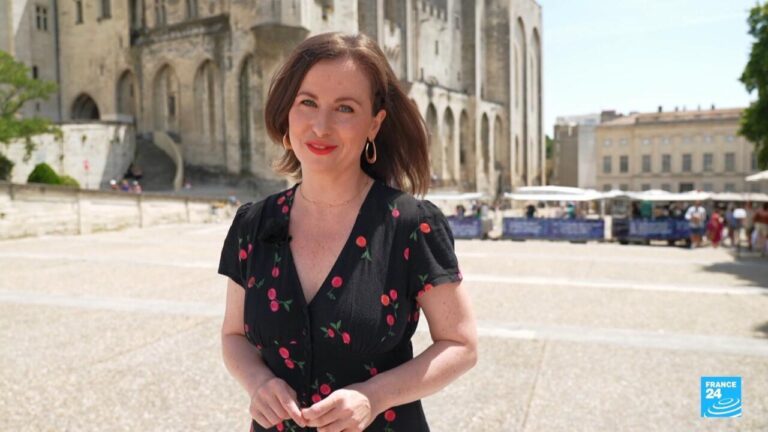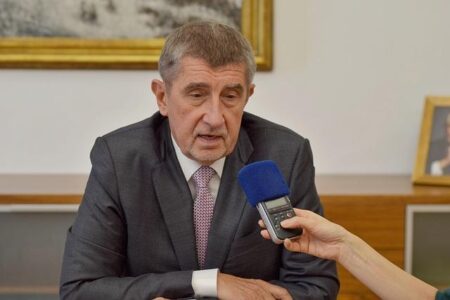Arabic Language Takes Centre Stage at Avignon’s 79th Theatre Festival
In a remarkable celebration of cultural diversity and artistic expression, the 79th Avignon Theatre Festival has spotlighted the Arabic language, showcasing its rich literary heritage and contemporary relevance. Running from July 7 to 26, this year’s festival features an array of performances that not only highlight the linguistic beauty of Arabic but also delve into themes of identity, struggle, and resilience that resonate across borders. Organizers and artists alike have come together to create a vibrant platform for Arabic-speaking talents, transforming Avignon into a dynamic crossroads of dialogue and creativity. As audiences gather from around the world, the festival promises to foster deeper understanding and appreciation of Arabic culture through the universal language of theatre.
Arabic Language Prominence at Avignon Festival Showcases Cultural Diversity
The 79th Avignon Festival has become a vibrant celebration of the Arabic language, bringing together diverse voices from the Arab world to showcase their artistic talents on an international stage. This year’s productions feature dynamic performances, captivating narratives, and poetic language, reflecting the multifaceted cultural tapestry of Arabic-speaking regions. The emphasis on Arabic not only promotes cultural exchange, but also highlights the importance of artistic representation in addressing contemporary issues faced by societies across the Middle East and North Africa.
Audiences are treated to an array of performances that blend traditional themes with modern storytelling techniques. The festival has embraced a variety of genres, including theatre, dance, and experimental art, which explore topics such as identity, displacement, and social justice. This year, the festival’s organizers have laid the groundwork for future collaborations, emphasizing the need for cross-cultural dialogues. As more Arabic playwrights and performers take center stage, the festival solidifies its role in elevating underrepresented voices and enriching the global arts landscape.
Innovative Productions Highlight the Evolution of Arabic Theatre
In a remarkable display of artistic expression, this year’s Avignon Festival saw a surge of innovative productions that showcased the richness and diversity of Arabic theatre. Directors and playwrights from across the Arab world brought forth narratives steeped in cultural significance, addressing contemporary issues while paying homage to traditional forms. Newly translated works and experimental performances captivated audiences, merging classical storytelling with modern theatrical techniques.
Highlighting the event were several acclaimed productions, including:
- “Sands of Time” – A poignant exploration of generational trauma and diaspora.
- “Voices of the Desert” – An avant-garde piece integrating multimedia and traditional music.
- “The Quest for Identity” – A provocative drama delving into themes of belonging and alienation.
| Production | Director | Theme |
|---|---|---|
| Sands of Time | Layla Al-Saud | Generational Trauma |
| Voices of the Desert | Alaa Fouad | Modernity vs Tradition |
| The Quest for Identity | Hadi Ibrahim | Belonging & Alienation |
Engaging Local Audiences: Strategies for Widening Accessibility and Understanding
The spotlight on Arabic language works at the Avignon Theatre Festival signals a crucial shift towards inclusivity in the arts. With an emphasis on showcasing diverse narratives, festival organizers are creating a platform for Arab playwrights and artists to express their cultural experiences. This initiative not only broadens the festival’s appeal but also invites local audiences to engage with themes that resonate across cultural divides. Key strategies include:
- Inviting local schools to participate in workshops that contextualize Arabic literature.
- Offering bilingual programs to facilitate wider audience understanding.
- Featuring talkbacks with artists post-performance to enrich audience interaction.
To successfully widen accessibility, partnerships with community organizations are essential. By collaborating with local cultural entities, the festival can enhance outreach efforts, ensuring representation from varied demographics. Furthermore, engaging local media to promote these works not only raises visibility but also paves the way for a richer dialogue. A table of key features and outcomes from past Arabic-focused events exemplifies this approach:
| Feature | Outcome |
|---|---|
| Workshops for youth | Increased interest in theatre arts |
| Bilingual performance guides | Higher attendance from diverse backgrounds |
| Community discussions | Enhanced understanding of cultural narratives |
Future Directions: Supporting Arabic Language Arts in Global Theatre Circles
The spotlight on Arabic language arts at the 79th Avignon Theatre Festival not only elevates the voices of Arab playwrights and performers but also sets a precedent for fostering global exchanges in theatre. As international audiences engage with the intricacies of Arabic storytelling, there lies an opportunity to create platforms that bridge cultural gaps. Prominent themes emerging from this festival include:
- Cultural Exchange: Encouraging collaborations between Arabic artists and their international counterparts.
- New Narratives: Highlighting narratives that challenge stereotypes and celebrate diversity within the Arabic-speaking world.
- Educational Initiatives: Implementing workshops and seminars to cultivate a deeper understanding of Arabic literature and performance styles.
As these initiatives take shape, the potential for Arabic theatre to influence global narratives increases. The challenge remains to sustain the momentum generated at such festivals and integrate Arabic language arts into ordinary theatre curricula worldwide. By establishing connections among artists, educators, and institutions, stakeholders can work towards ensuring a more inclusive representation of diverse cultural voices. Below is a concise overview of key considerations:
| Consideration | Description |
|---|---|
| Accessibility | Ensuring translated works and performances reach a wider audience. |
| Funding | Increased financial support for Arabic productions from international sponsors. |
| Promotion | Utilizing digital platforms to showcase Arabic theatre globally. |
Wrapping Up
As the curtains close on the 79th edition of the Avignon Theatre Festival, the spotlight on the Arabic language serves as a poignant reminder of the power of cultural exchange. This year’s performances not only showcased the richness and diversity of Arabic storytelling but also fostered dialogues that transcend borders and resonate with global audiences. With the festivalŌĆÖs commitment to inclusivity and the celebration of different voices, it has redefined its role as a cultural beacon in the world of performing arts. As we reflect on the impact of this year’s festival, it becomes evident that the narratives woven through Arabic theatre are not just an artistic expression, but also a call for unity and understanding in an increasingly divided world. The future looks promising as Avignon continues to embrace and elevate voices that challenge, inspire, and connect.




